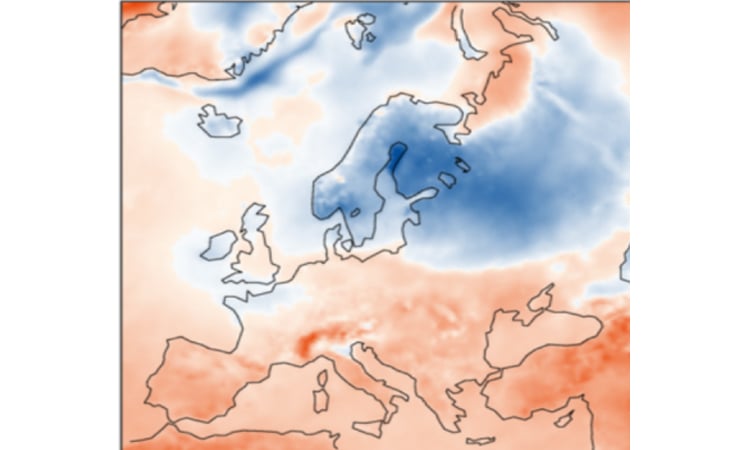News Flash
News Flash

OSLO, Jan 8, 2025 (BSS/AFP) - The Norwegian Meteorological Institute said
Wednesday that 2024 was the hottest year ever recorded for mostly Arctic
northern Norway.
Last year was the third hottest and the third wettest since records began in
1901 for the Scandinavian nation, which is a major oil and gas producer.
But the country's three northernmost regions, which mostly lie north of the
Arctic Circle, were 1.3 to 1.5 degrees Celsius (2.3 to 2.7 degrees
Fahrenheit) above normal, according to the weather agency.
The far north has seen temperatures increase faster than the rest of the
world due to a phenomenon known as "Arctic amplification".
Rising temperatures melt sea ice which in turn contributes to accelerated
warming in the region, as dark sea water absorbs more solar radiation and
thus helps to heat up the atmosphere, which then further accelerates the
melting of the ice.
The Svalbard archipelago, which is located halfway between mainland Norway
and the North Pole, has seen temperatures increase at a rate of five to seven
times the global average, according to the institute.
In the northeast of Svalbard, and in the northern part of the Barents Sea
that surrounds it, the average temperature has risen by more than five
degrees Celsius since 2000, it added.
"These changes exceed most of what we know in terms of observed temperature
changes," said Ketil Isaksen, a climate scientist at the institute.
A warmer ocean also translates to more rainfall due to increased evaporation.
The World Meteorological Organization said in late December that 2024 was set
to be the warmest ever recorded, capping a decade of unprecedented heat.
Meanwhile, emissions of greenhouse gases grew to new record highs, locking in
more heat for the future, the UN body said.
The organisation also noted that the year had seen record-breaking rainfall
and flooding events, along with tropical cyclones, intense heat and
wildfires.